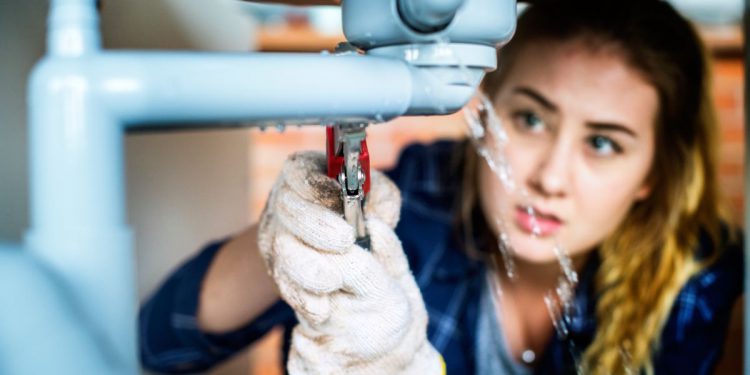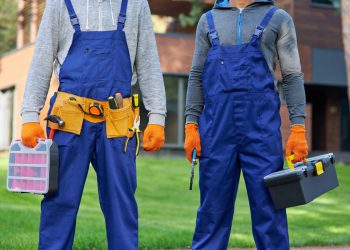There are certain crises that occur that have you wishing you had never gotten out of bed this morning. Where the effort involved to try and fix the problem can seem unbearable, and the damage that is done can be irreparable. A burst pipe is one such issue and one that too many of us may have to deal with at some point.
A burst pipe can flood your home and cause serious damage to your property. But just what causes pipes to burst? And what should you do when one does? Read on to discover how to deal with this kind of emergency, and how to try and prevent your pipes from bursting in the first place…
Why do pipes suddenly burst?
When your water pipe bursts, it can feel like you have been given no warning. Just a sudden huge influx of water into your home, causing catastrophic damage and flooding, and, what is worse, costing you a huge water bill on top of all this expensive mess.
Though it may feel like you are terribly unlucky to have experienced this nightmare, there are plenty of reasons why pipes do burst. These include:
- Freezing – this is one of the most common causes of pipes bursting. When water freezes and thaws, it causes the pipes to expand and contract which can cause cracks. Sudden changes in temperature can cause pipes to burst, so it can be more likely at the times of year when these extremes in temperature occur.
- Tree roots – tree roots can grow and spread into unwelcome places, pretty much the worst of which is through your pipes. These roots can again cause cracks and even lead your pipes to burst.
- Corrosion – metal can erode away over time, weakening until the pipe finally bursts.
- Clogs – when your pipe gets clogged, often you can unclog it using chemicals, boiling water, or by calling in a plumber to take care of it for you. If, however, the clog is left to build up, the water pressure can build behind it causing your pipe to burst.
- High water pressure – as well as high water pressure from a clog, high water pressure in general, can stress your pipes and cause them to burst.
How do you stop a burst pipe fast?
When a pipe bursts, a great flood of water explodes into your basement or another room in your home. This water rushes out at an alarming speed, quickly causing a flood that will cause untold damage to your possessions and your property. The faster you can stop this water from running out of your burst pipe, the better you can protect your belongings and your home.
The first thing to do when you have a burst pipe is to shut off the water. Each home has a main shut off valve which prevents water from coming in from the main water supply. It is essential that you know where this valve is, so that you can swiftly go and turn it off if the need arises. Turning off your water won’t fix your pipe, but it will stop further damage being done.
Your stop tap is usually located under your sink, though it may be elsewhere in your house. Check now where it is so that you can reach it instantly in the event of an emergency. Once you have turned your shut-off valve, you also need to turn off your heating and open your taps. This empties out the system preventing further damage.
You may also want to catch some of this water in buckets to use while waiting for your water to come back on. Your electricity will also need to be turned off if your water pipe has caused a flood near any electric supply. You can then throw down old towels or anything else to soak up the water.
Now that you have the problem contained for the moment, it is time to call an emergency plumber. A burst pipe is a big deal. You cannot turn your water back on until it is fixed, so it is imperative that you get a plumber out to fix it right away. Plumbing is not something that you want to mess with yourself, as any small mistakes here can have big consequences.
Make the right decision and leave your plumbing to the professionals. Call an emergency plumber right away.

How can you prevent pipes from bursting?
A burst pipe can be a complete nightmare, but there are steps that you can take to prevent your pipes from bursting in the first place, or at least to decrease the likelihood. Sometimes these things happen, but by taking certain sensible precautions, you could well save yourself the hassle and serious damage that comes with a burst pipe.
Some of the precautions you can take are:
- Insulate your pipes – by insulating your pipes, you can help prevent the temperature extremes that can cause them to crack. Simple thermal tape, pipe lagging, and tank jackets can be bought cheaply, and you can even fit them yourself.
- Keep your home warm – similarly, you can prevent extremes of temperature by keeping your home warm year round. Even if you are not at home, you can set your thermostat to come on if the temperature dips too low. This will stop your pipes from freezing, and therefore help prevent bursts.
- Check your water pressure – you can check your water using a pressure gauge, to see if your water pressure exceeds the norm. If it is indeed too high, you can pre-emptively call in a plumber to reduce it. This will cost less than calling out an emergency plumber, and you won’t have to worry about the expensive damage that a burst pipe can cause.
- Allow a small drip – keeping your tap dripping can prevent the water from sitting still in the pipes, where it is more likely to freeze.
When it comes to corrosion, blockages, and more, calling in a professional plumber early on is the best way to stop these issues from becoming critical.
Final thoughts
A burst water pipe can be a massive inconvenience and a complete and utter nightmare, and one that is far worse if you are not properly prepared. Taking such precautions as insulating your pipes can make them less likely to burst, and knowing the location of your shut-off valve can lead to less damage if they do.
Calling in a plumber to take preventative action can cost far less than having to fix the damage of a burst pipe, so make the sensible choice and contact a plumber to look at your pipes right away.













